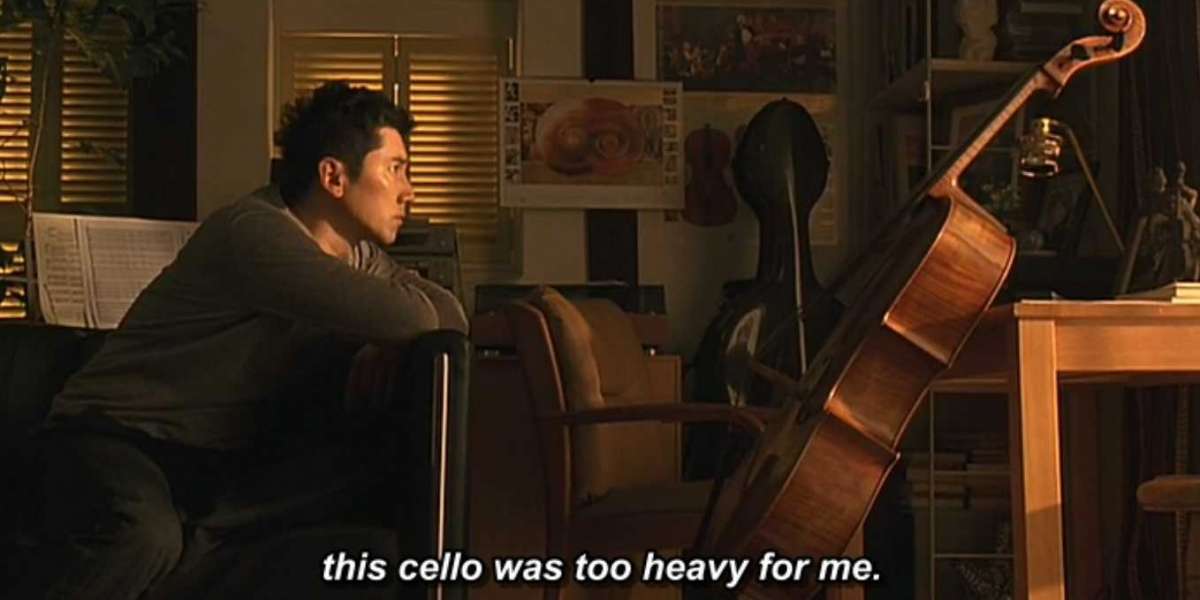Movie “Departures”
A drama film “Departures” directed by Yōjirō Takita touches such a socially controversial subject as the trade of undertaking in Japanese culture. This motion picture embraces a variety of vital themes such as death, fate, dream, love, and forgiveness among others. Significantly, a job of an undertaker is considered as unclean in Japan. Nonetheless, although the society discriminates those who prepare the deceased to their last journey, it is important to do this job with dignity and respect.
The main character Daigo is a talented cellist but, unfortunately, the orchestra in Tokyo where he plays dissolves. Deep in debt, he with his wife decides to move back to his small hometown in the north of Japan where fate tests him. Daigo receives a job as an undertaker mistakenly thinking it is a travel agency. This moment becomes a turning point in his life: it becomes a challenge for him because of prejudices toward those who work on the cemetery. Eventually, even his beloved wife can not bare it and leaves him. However, it does not make Daigo quit this job; his persistence and devotion to the trade help him earn the others’ respect.
The film shows a negative stigma to death in Japanese culture. The death is an inevitable and great uncertainty that is terrifying for everyone. The temporality of life makes people feel weak and defenseless, which, in turn, provokes numerous fears and prejudices toward the theme of death clearly depicted in the movie “Departures”. The undertakers belong to despised social layers and possess a very low status. However, somebody has to do this job and this is not a work for faint-hearted ones but rather a real challenge which makes human rethink the life. Still, the main hero Daigo and his boss manage to turn the funeral business into an elaborate procedure. The rituals of funerals shown in the movie are very elegant, tranquil, and peaceful as if the death meant not the end but a gateway to the next stage.
Another theme covered in the movie is people’s dreams, which sometimes may be a burden of human’s life. Often, looking for great opportunities in big cities, people lose the sense of life forgetting who they really are. Eventually, some kind of fate may return them to their roots, where it tests them and their loved ones, reminding that family bonds are the most valuable ones. It is extremely important to realize it when it is not too late. However, sometimes offence and pain become an obstacle; people often make mistake thinking that forgiveness is a weak feature while in reality only strong people can do that. As we see in the movie, Daigo’s wife Mika eventually finds strength to accept and respect what her husband does. As for Daigo, in the end of the film he lets his hatred to the father go and forgives him. This is probably the saddest and, at the same time, the deepest scene of the movie.
Though the main topics of the movie are quite serious, there is a place for humor which is always appropriate. Its role is probably to mask the fears which are hard to overcome when they concern such an unpleasant topic as death. Winter landscapes along with the sentimental music emphasize an overall mood of the film and help to immerse into the movie’s atmosphere.
To summarize, “Departures” is a movie purposed not to entertain but to make one think about a profound sense of life and its temporality. It teaches how to do any job with dignity no matter how hard and despised it is. The motion picture places emphasis on family values, forgiveness, and mutual understanding and support in harsh situations. Due to such philosophical and serious approach, the movie “Departures” is definitely worth watching.
This movie review was pre written by Olivia Adamson, more her papers on similar topic you may read at https://freshessay.net/order-a-stellar-film-critique














